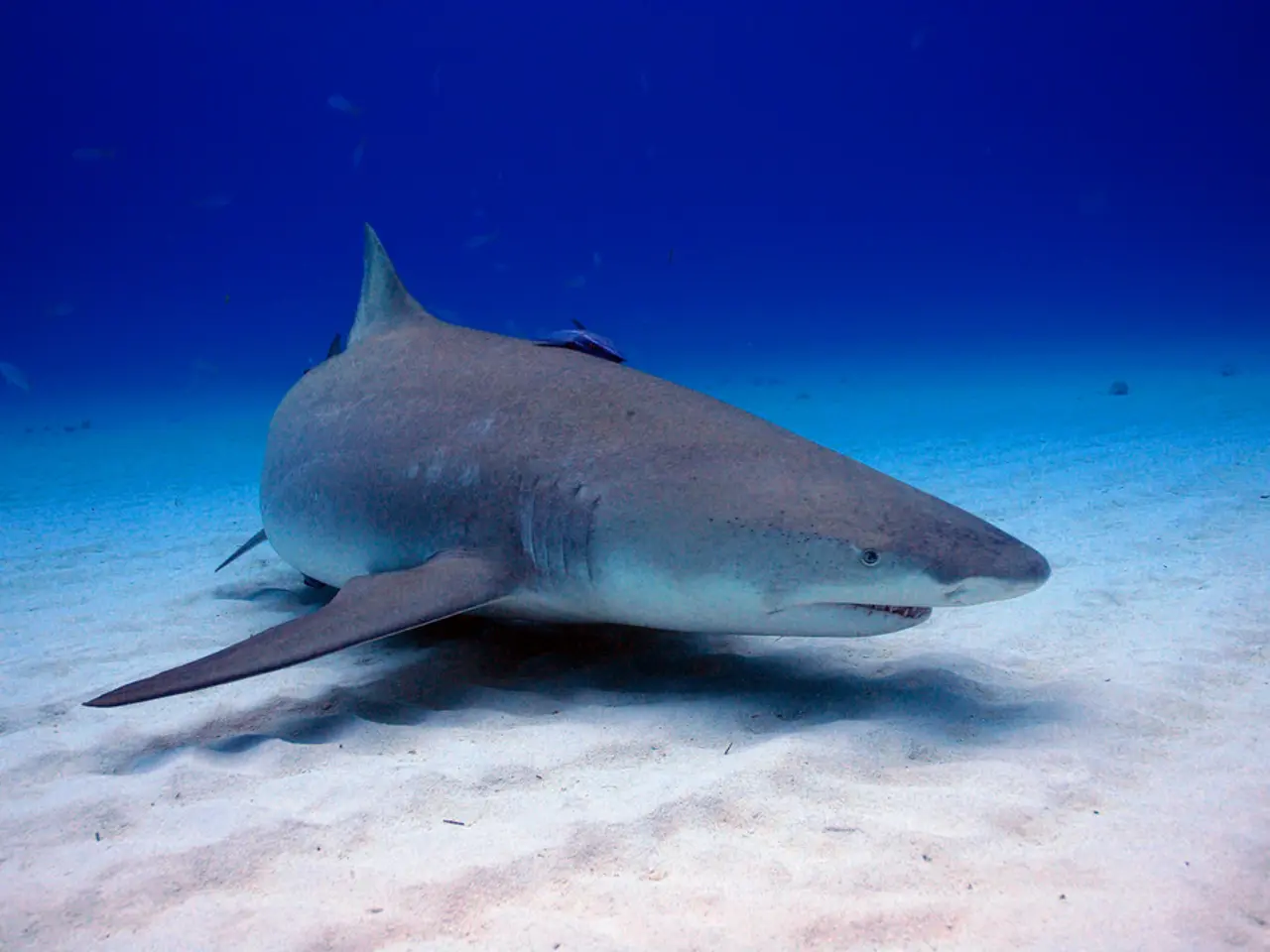Study Spotlight: Dolphins' Vigilant Guardians
In a groundbreaking study, researchers at UC San Diego have revealed the presence of high levels of man-made toxic chemicals in Bottlenose Dolphins that died of natural causes and washed ashore in Southern California. The study, published in the journal Environmental Science and Technology, is a product of the new Scripps Center for Oceans and Human Health (COHH).
The research, funded by the National Science Foundation, the National Institute of Environmental Health Sciences, California Sea Grant, and other agencies, employs a "non-targeted" method to investigate a wide range of chemicals in the marine environment. The study's coauthors include researchers from the Southern California Coastal Water Research Project, San Diego State University, and NOAA's Southwest Fisheries Science Center.
One of the key findings of the study is the detection of legacy pesticides like DDT in dolphin tissue, pointing to long-lasting chemical dumping effects in the Pacific Ocean. The study also provides evidence that forever chemicals (PFAS) are present in these dolphins and are linked to chronic inflammation and immune system weakening, posing significant risks to marine wildlife health and reproductive success.
The accumulation of these chemicals in bottlenose dolphins indicates a broader environmental contamination that threatens various marine species and can disrupt entire marine food webs, with toxic compounds transferring through the ecosystem via dolphins as apex predators.
The new catalog contains more than 300 chemicals, some linked to human-produced sources such as DDT and PBDEs. Ninety-four of the chemicals in the new catalog are unknown, suggesting a need to learn more about them.
The study underscores that many toxic compounds remain undetected in marine ecosystems and continue to affect the health of marine mammals, signaling a need for ongoing monitoring and pollution mitigation efforts. The researchers employed a new technique for detecting chemicals and possible toxic contaminants in the marine environment, using cutting-edge analytical tools to separate and analyze the suite of chemical compounds.
The region is historically known for wastewater and storm water discharge loads, and contamination from DDT and PCBs. This study serves as a reminder of the importance of continued efforts to monitor and mitigate pollution in our marine environments to protect the health of marine wildlife and humans alike.
Image Gallery: Dolphin Chemicals
[1] Environmental Science and Technology, [Title of the paper], [Year], [Volume], [Pages] [2] [Source of information about chronic inflammation and immune system weakening], [Year], [Accessed on: date]
- The study conducted by researchers at UC San Diego's Scripps Center for Oceans and Human Health (COHH) reveals that not only are legacy pesticides like DDT found in bottlenose dolphin tissue, but also forever chemicals (PFAS), which are linked to health issues in mental-health, health-and-wellness, and fitness-and-exercise in humans, pose significant risks to mental-health and reproductive success in dolphins.
- The accumulation of these chemicals in marine species, such as bottlenose dolphins, indicates a broader environmental contamination, raising concerns about climate-change and its impact on the environment and nutrition of various marine species, and potentially disrupting entire marine food webs.
- To combat this issue, ongoing monitoring and pollution mitigation efforts are crucial, as the study suggests that many toxic compounds remain undetected in marine ecosystems, and continued use of cutting-edge analytical tools in environmental-science is necessary to ensure the health of marine wildlife and humans.




